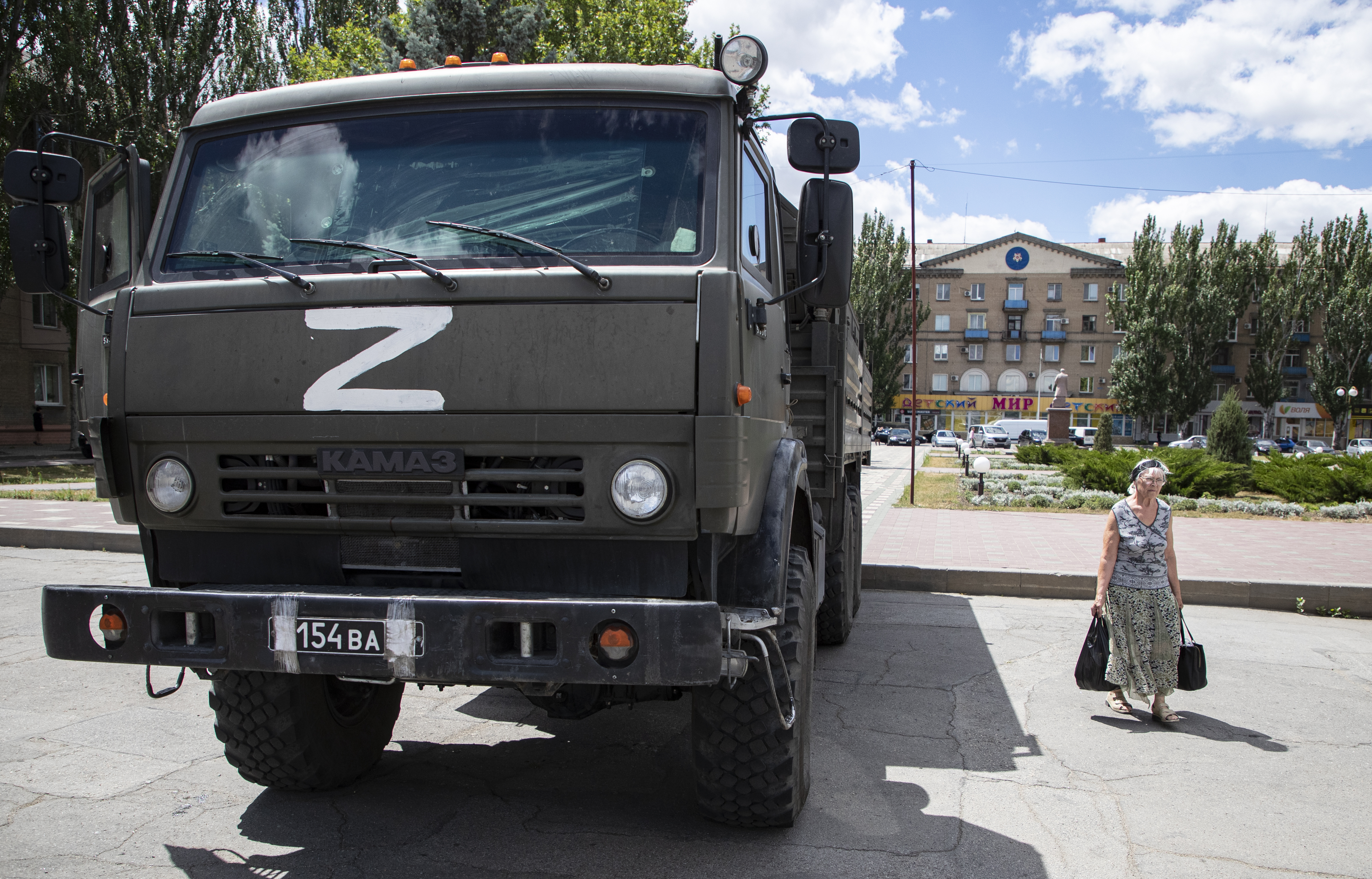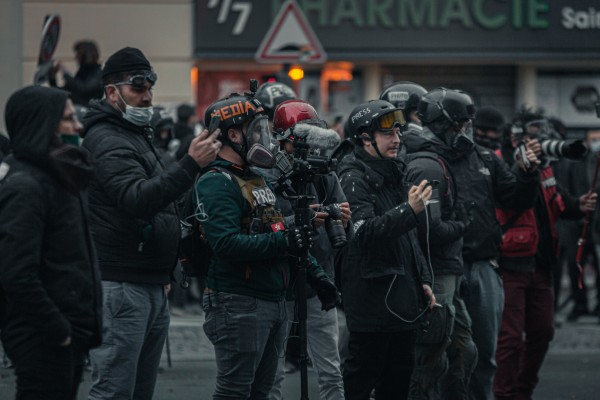The International Press Institute (IPI) global network is alarmed by the repressive arrest of retired journalist Iryna Levchenko in Melitopol, a city in Ukraine’s Zaporizhia region, occupied by Russian forces since March 2022.
According to relatives in touch with the National Union of Journalists of Ukraine (NUJU), Levchenko went missing around May 6 along with her husband Oleksandr. Her relatives learned of her detention by Russian occupation forces only two weeks later, NUJU reported.
She is currently detained at a different location than her husband, with both possibly facing charges of extremism, NUJU president Sergiy Tomilenko told IPI. However, no information is yet available on formal charges against her or her husband.
Tomilenko added that the couple were retired, and that Levchenko had not engaged in journalistic activities at least since the start of the occupation of southeastern Ukraine by Russia early last year. According to Tomilenko, prior to her retirement Levchenko had worked with national Ukrainian media, such as Fakty, as well as with local outlets.
“We believe that her arrest is linked to her journalistic activities, with occupation authorities increasing pressure”, Tomilenko said, in reference to repression against an ever-wider range of journalists, activists and other individuals whom Russian occupying forces suspect of sympathizing with Ukraine.
Levchenko and her husband had likely decided to stay in Melitopol for personal reasons, with the hope that the city’s occupation by Russian forces would soon end, NUJU’s president told IPI.
“Russia’s arbitrary arrest of Iryna Levchenko in her Ukrainian hometown of Melitopol underscores the dangers faced by journalists, current or former, in territories under Russian occupation”, IPI Deputy Director Scott Griffen said. “The IPI global network calls for Levchenko’s immediate release and for an end to all forms of harassment against the press in Russia-occupied Ukraine.”
He added: “The near-absolute information embargo Russian authorities have imposed on these regions is enabling the indiscriminate arrests of journalists, activists, and thousands of other Ukrainian citizens. This oppression is operating within a void barely limited even by Russian legislation, let alone by international human rights and rule of law standards. International actors must pay closer attention to the dire situation of Ukrainian journalists and other citizens facing repression in territories occupied by Russia.”
As of May 2023, aside from Levchenko, no fewer than seven Ukrainian journalists are imprisoned by Russian authorities. This includes six media workers in occupied Crimea, who are serving prison sentences on charges related to “terrorism” and “extremism”. Information is scarcer in the case of Dmytro Khilyuk, a correspondent for the Ukrainian press agency UNIAN, who was taken captive by Russian forces near Kyiv in March 2022. Khilyuk’s relatives have since received no word from the journalist, with the exception of a short message in September, in which the journalist confirmed he was “alive and well”, despite remaining in prison in Russia.
According to IPI monitoring collected through the IPI Ukraine War Press Freedom Tracker, Russia’s full-scale invasion of Ukraine has led to no fewer than 1,000 media freedom violations, with the vast majority of these having been committed by Russian authorities and the Russian military.



